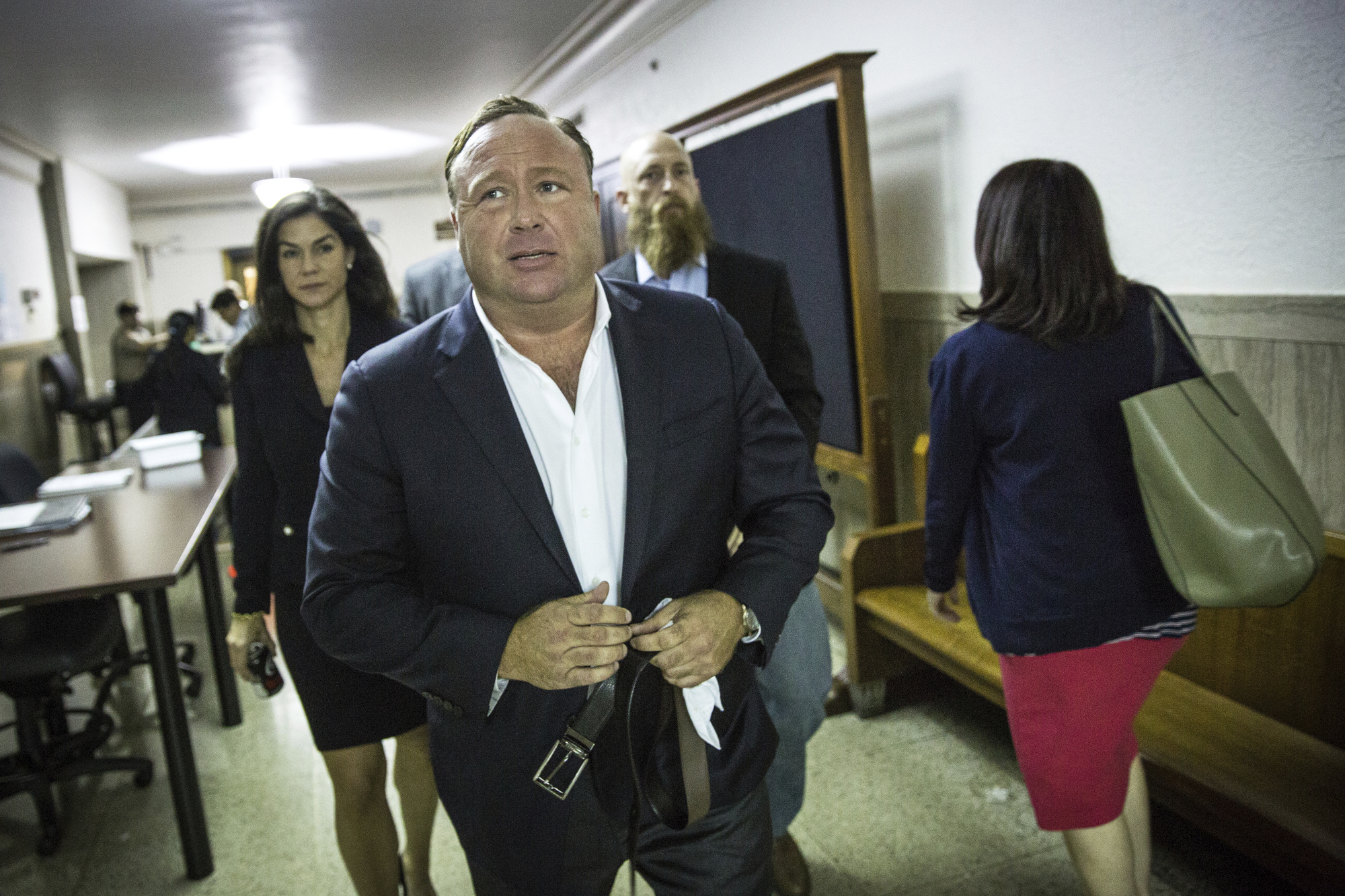
Yogurt maker Chobani filed a defamation lawsuit in district court against radio conspiracy theorist Alex Jones on Monday, weeks after Jones’s network alleged that Chobani was “importing migrant rapists.” In the lawsuit, lawyers for Chobani said they have repeatedly asked for the the allegation and corresponding tweets to be taken down, but Jones has refused to comply. They also say that the accusation was “knowingly false” and made with “actual malice.”
What happened?
On April 11, Alex Jones‘s YouTube channel published a video called “MSM Covers for Globalists’ Refugee Import Program After Child Rape Case,” and its Twitter page used the headline “Idaho Yogurt Maker Caught Importing Migrant Rapists.” The video made inaccurate connections between Chobani’s employment of refugees and an unrelated sexual assault case in Twin Falls. Jones also told his listeners had brought “crime and tuberculosis” to the Twin Falls community. Chobani repeatedly asked Jones to take the post and tweet down, and Jones refused.
Is Jones’ accusation true?
No. Chobani CEO Hamdi Ulukaya has been outspoken in his efforts to help migrants, and employs at least 300 refugees at his Chobani factory in Twin Falls, Idaho. The allegation appears to be a distortion of a separate news story out of Twin Falls, in which three boys — ages 14, 10, and 7 — pleaded guilty to sexually assaulting a 5-year old girl last year. The perpetrators were initially misidentified on conspiracy websites as Syrian refugees, but the two older boys were of Sudanese descent, and the youngest was of Iraqi descent. Most of the details of the case are sealed because the accused are juveniles, but Twin Falls prosecutor Grant Loebs said Monday that there is no connection between the assault and Chobani.
Has Chobani been increased refugee resettlement in Twin Falls?
The mayor doesn’t think so. Chobani employs at least 1,000 people at its factory, including a few hundred refugees, and the factory also “supports dairy farmers and the people who grow the feed for the cattle,” says Twin Falls Mayor Shawn Barigar. Barigar says the region has been a home for resettled refugees since the 1980s, long before Chobani opened its factory there in 2012. “It got convoluted into this narrative that refugee resettlement was a new thing here, specifically to provide employees to Chobani,” Barigar said. “That whole narrative is absolutely false.”
Will the lawsuit succeed?
Defamation lawsuits of this kind are difficult to win, especially if the “defamation” is against a public figure or corporation, like Chobani. In order to win the lawsuit, Chobani would not just have to prove that the statements were false — they would have to prove that the defendants knew they were false and published them anyway. “In a case like this, Chobani would have the burden of proof,” says Lee Levine, a First Amendment lawyer . “If the evidence were 50/50, Chobani would lose.” To win, Chobani would have to prove “a high degree of awareness of probable falsity,” which means the case could rest on what Jones believed at the time he published the video. That is tricky to determine, since Jones is currently embroiled in a custody battle in which his lawyers are arguing that Jones is a “performance artist.”
How did Jones Respond?
In a video published Monday on his YouTube Channel, Jones alleged that Chobani was an “Islamacist owned and backed” company tied to “Nazi collaborator” George Soros, then pointed to dozens of news articles he claimed supported his beliefs about refugees, Muslims, and sexual assault, without citing any factual evidence that Chobani was at all connected to the case in question. “You wait till the Idaho jury, brother sits there and sees all this. Won’t matter that they work at your damn plant. They hate your guts too! They hate your thuggery, they hate your bullying… they hate everything Islam does.”
More Must-Reads from TIME
- Introducing the 2024 TIME100 Next
- The Reinvention of J.D. Vance
- How to Survive Election Season Without Losing Your Mind
- Welcome to the Golden Age of Scams
- Did the Pandemic Break Our Brains?
- The Many Lives of Jack Antonoff
- 33 True Crime Documentaries That Shaped the Genre
- Why Gut Health Issues Are More Common in Women
Write to Charlotte Alter at charlotte.alter@time.com